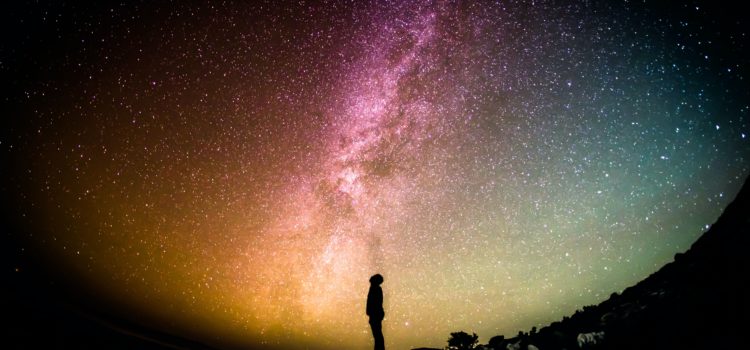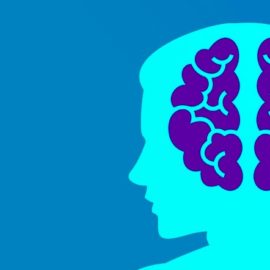

This article is an excerpt from the Shortform book guide to "The God Delusion" by Richard Dawkins. Shortform has the world's best summaries and analyses of books you should be reading.
Like this article? Sign up for a free trial here .
What is the anthropic principle? Does it help explain why human beings exist?
The anthropic principle is the idea that all things in the universe are constrained to allow human development. This idea helps us think about how intelligent life formed.
Read more about the anthropic principle and what it means.
The Anthropic Principle: Why We’re Here
Even if one accepts the theory of natural selection, it does not explain how the process started. How did life begin in the first place? Religious people claim that God must have at least started life in the universe, even if some of them might concede that evolution by natural selection is the means by which it arrived at the forms we observe today.
But science has a better explanation, known as the anthropic principle. It states simply that our planet, and by extension our universe, must have the right properties for intelligent life to develop—like water, the right temperature conditions, and a stable orbit and gravitational field—because we are here and able to make observations about it.
(Shortform note: To learn more about the anthropic principle and the origins of our universe, read our summary of Stephen Hawking’s A Brief History of Time.)
The Luck of Intelligent Life
The anthropic principle provides a useful framework to think about the likelihood of intelligent life in the universe.
Astronomy conservatively estimates that there are around one billion billion planets in the universe. Even if you put the odds of intelligent life emerging on any given planet at one in a billion, this would still yield one billion planets capable of sustaining such life. We are not accustomed to accepting events with a one-in-a-billion probability of happening, because they never happen in the course of day-to-day human experience.
But we are also not used to dealing with the sheer scale of the universe, which makes such events likely to happen at least somewhere. If we accept the anthropic principle, then we just happen to be on one of the lucky few planets that can support beings like us, living in a universe with the right mix of fundamental constants to create such planets.
God Setting the Conditions?
Indeed, our existence as intelligent beings is highly unlikely. But we must measure the unlikelihood of our existence in the universe against the God Hypothesis, which posits a supreme being carefully setting precisely the right conditions in the universe to support intelligent life.
The existence of a deity capable of precisely calibrating the conditions of the universe so as to support the survival of intelligent life is surely even less likely than the existence of those conditions themselves. Moreover, God is not a “simple” explanation for the existence of intelligent life, despite what theists claim.
If the God Hypothesis were true, the deity it posits would be mind-bogglingly complex, capable of controlling the movement of every subatomic particle in the universe. This once again raises the inevitable question—by what mechanism could such a complex being arise? Who designed the supreme designer?

———End of Preview———
Like what you just read? Read the rest of the world's best book summary and analysis of Richard Dawkins's "The God Delusion" at Shortform .
Here's what you'll find in our full The God Delusion summary :
- Why Dawkins thinks religion has exerted a harmful influence on human society
- How Dawkins concludes that the existence of God is unlikely
- The 3 arguments that challenge the existence of God






